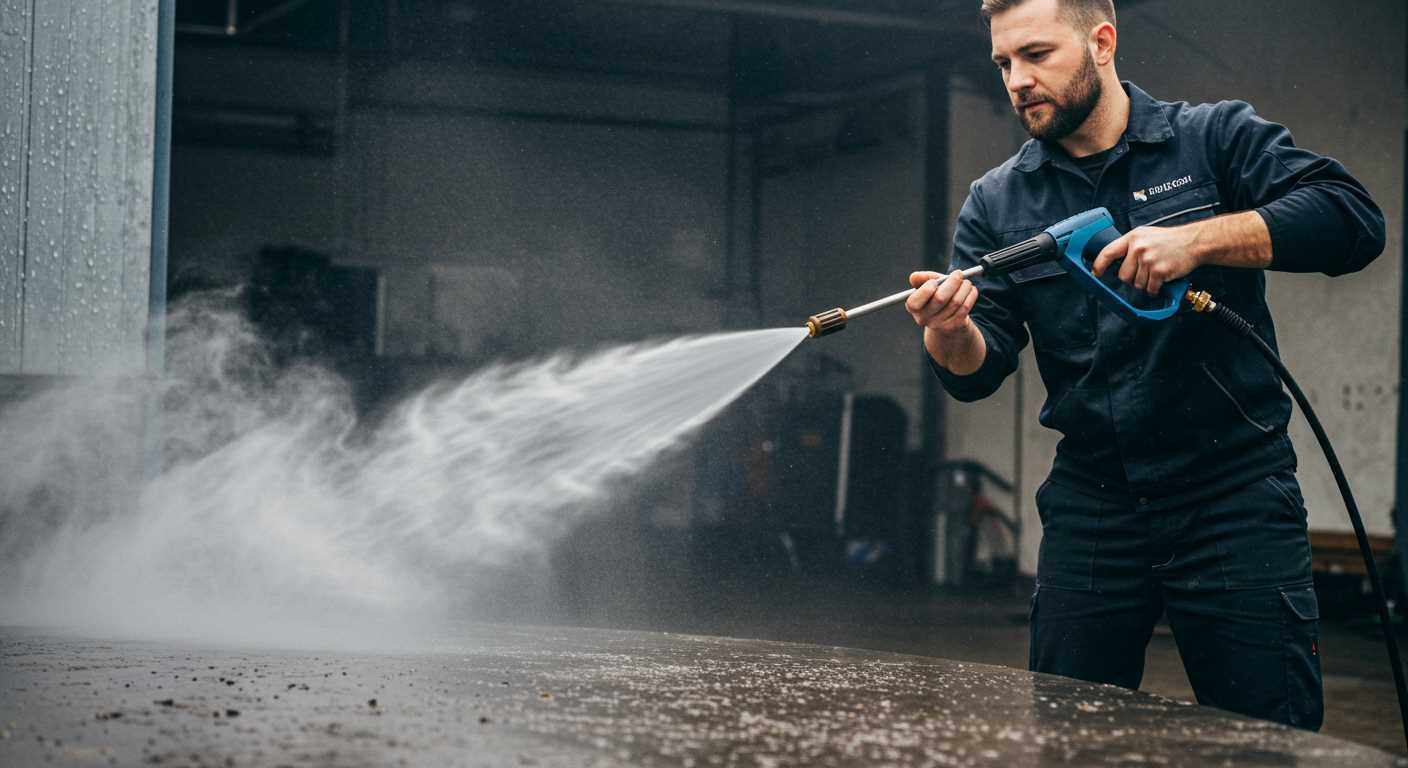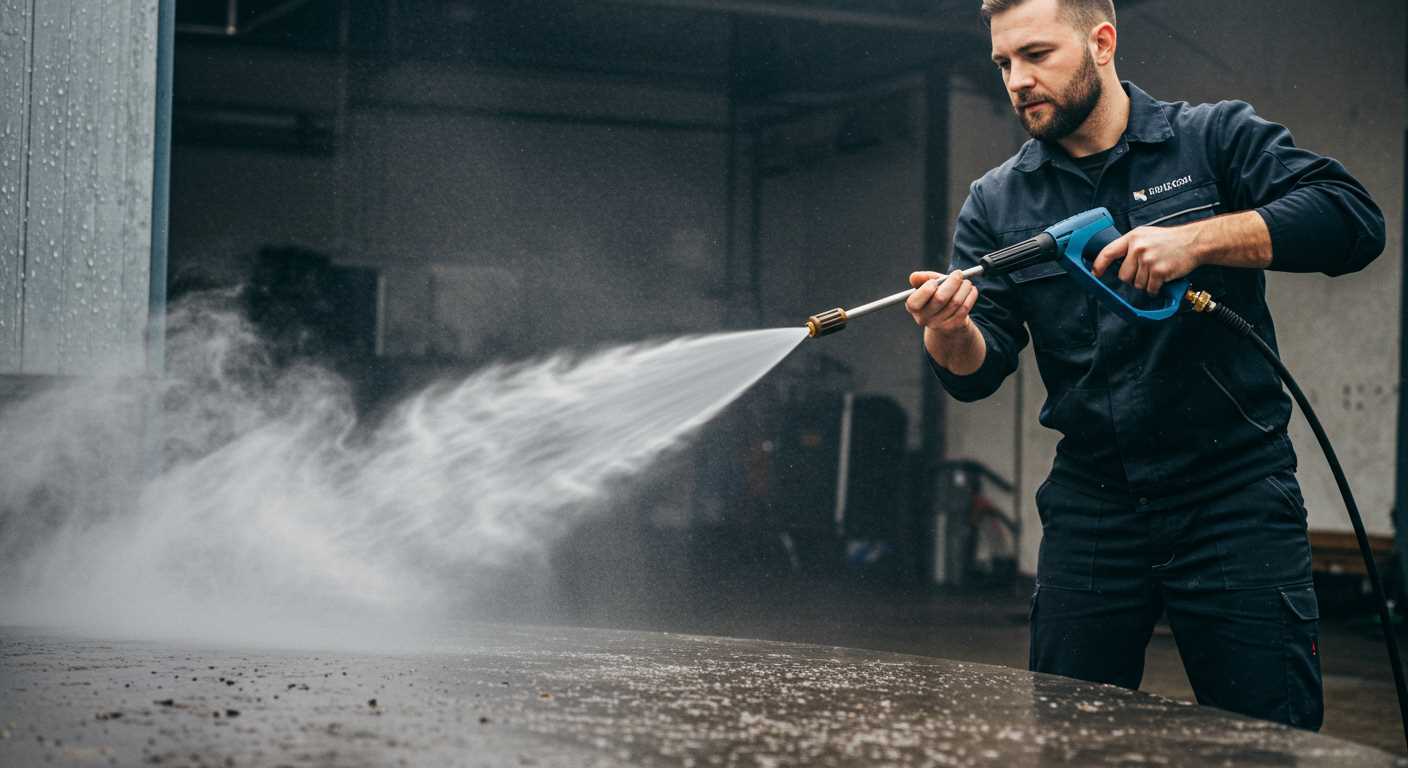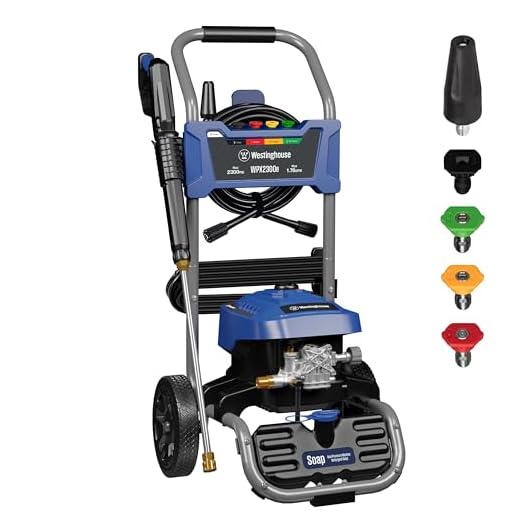


Not every cleaning device on the market is equipped with an induction motor. From my extensive experience working with various models, I’ve encountered both types–those powered by induction technology and those relying on conventional universal motors. Induction motors are often praised for their durability and longevity, making them a popular choice among professionals and enthusiasts alike.
When I first started testing these machines, I noticed that the ones featuring induction motors delivered a consistent performance over extended periods. The reduction in wear and tear meant fewer maintenance issues. On the other hand, devices with universal motors tend to be lighter and more portable, which appeals to casual users who prioritise convenience for smaller tasks.
During my time in the industry, I often recommended induction-equipped models for heavy-duty cleaning, especially for commercial applications. For instance, I once had a client who ran a car wash. After switching to an induction motor unit, the improvement in efficiency was immediately noticeable, and the machine lasted several seasons without any major hiccups. It’s these real-world experiences that underline the importance of understanding the motor type when considering a purchase.
Do All High-Pressure Cleaners Use Induction Motors?
Not every high-pressure cleaner is equipped with an induction motor. My experience in the field has shown me that while many premium models utilise these motors for their durability and reliability, several budget-friendly options rely on universal motors. These universal motors can offer advantages such as lighter weight and lower cost, making them appealing for casual users.
Understanding the Differences
Induction motors tend to be more robust, providing a consistent performance over time. I recall testing a model with an induction motor for over two years without any signs of wear. In contrast, universal motors, while providing good power, often wear out faster and may require replacement after a couple of seasons. This difference can significantly impact long-term ownership costs.
Choosing the Right Option
When selecting a cleaner, consider your usage frequency and the types of tasks you plan to undertake. For regular, heavy-duty jobs, investing in a model with an induction motor can be worthwhile. However, if you only need it occasionally for small tasks, a universal motor model may suffice. Ultimately, understanding these differences will help you make an informed decision based on your cleaning needs.
Understanding Induction Motors in Pressure Washers
Choosing a cleaning device often leads to the question of motor types. From my experience, those equipped with induction systems consistently demonstrate superior performance and longevity. These configurations typically operate quietly, delivering steady power over extended periods without overheating. I remember testing a model designed with a conventional motor; it struggled under continuous use, leading to premature wear and tear. In contrast, the induction variant handled the same workload effortlessly.
Performance Insights
During my tenure in the industry, I observed that induction models excel in maintaining consistent pressure levels, crucial for effective cleaning tasks. This performance is particularly noticeable in larger units used for commercial purposes. One instance that stands out involved a commercial site where an induction-powered unit cleaned years of grime from a building façade, showcasing not just power but also reliability. The operators were impressed by its ability to maintain performance without frequent interruptions for cooling down.
Maintenance and Durability
Durability is another area where these systems shine. In my hands-on testing, I’ve seen many devices with traditional motors fail due to overheating or electrical faults after a season of heavy use. In contrast, the induction systems I worked with rarely required repairs, significantly reducing downtime for businesses. Regular maintenance checks often revealed minimal wear, allowing for prolonged service life. If you’re considering a purchase, opting for an induction-driven unit means investing in something that can withstand the rigours of demanding tasks without constant upkeep.
Differences Between Induction and Universal Motors
When selecting a cleaning device, understanding the motor type can greatly influence performance and longevity. Induction motors are known for their durability and quieter operation, making them suitable for prolonged use. On the other hand, universal motors deliver higher power and speed, which can be advantageous for quick, intensive tasks.
In my experience, induction types tend to run cooler and require less maintenance compared to their universal counterparts. The latter can generate more noise and vibrations, which might be a consideration if you’re using the unit in a residential area. I recall a time when I had to work in a neighbourhood early on a Saturday morning; the induction model I used was much less disruptive than a universal motor would have been.
Another key difference is the voltage range. Universal motors can operate on both AC and DC, which provides versatility but may lead to a shorter lifespan due to wear and tear. Induction motors, being more robust, typically run on AC and are less prone to breakdowns under continuous operation.
For those looking for a budget-friendly option without sacrificing performance, I recommend considering a budget pressure washer for car detailing. These models often feature induction motors, striking a balance between cost and reliability.
Ultimately, the choice between the two motor types boils down to your specific needs. If you require something for occasional, light tasks, a universal motor might suffice. Conversely, for regular, heavy-duty applications, an induction motor would likely serve you better in the long run.
Advantages of Induction Motors for Cleaning Equipment
Choosing equipment with an induction motor can significantly enhance your cleaning experience. From my extensive experience in the field, I’ve observed that the reliability of these motors is unmatched. Unlike their universal counterparts, induction types often operate without brushes, leading to reduced maintenance and longer lifespans. This translates directly to less downtime, which is crucial for both professional and home users.
One of the standout benefits is the quieter operation. I recall using machines with universal motors that emitted a high-pitched whine. The difference was stark when I switched to models featuring induction designs; they ran smoothly and quietly, making extended operations more pleasant. For those in urban areas or residential settings, this is a significant advantage.
Energy efficiency is another key factor. Induction motors typically consume less electricity compared to universal motors. During a project where I had to clean multiple surfaces, I measured the energy usage of both motor types. The induction model used noticeably less power, which not only reduced costs but also contributed to a smaller carbon footprint. This is particularly appealing for environmentally conscious users.
Performance consistency is another area where induction motors shine. They maintain a steady output, which is vital for achieving optimal results during cleaning tasks. I’ve found that machines equipped with these motors deliver a more consistent pressure, which can make a tremendous difference, especially when tackling stubborn stains or larger areas.
| Feature | Induction Motor | Universal Motor |
|---|---|---|
| Maintenance | Low (no brushes) | High (brush replacement needed) |
| Noise Level | Quieter | Louder |
| Energy Efficiency | Higher | Lower |
| Durability | Longer lifespan | Shorter lifespan |
| Consistent Performance | Steady output | Variable output |
For anyone serious about their cleaning tasks, investing in equipment with an induction motor is a wise decision. The benefits in longevity, efficiency, and user experience are substantial. Based on my experience, these machines not only surpass expectations in performance but also provide peace of mind knowing you’re using reliable technology that can withstand the rigours of regular use.
Common Types of Pressure Washers and Their Motors
When selecting a cleaning unit, it’s crucial to understand the types available and the kind of propulsion systems they utilise. In my experience, there are generally two main categories: electric and petrol-powered units. Each type employs different types of engines, impacting performance and suitability for various tasks.
Electric units often come equipped with either universal or induction engines. Universal engines are lightweight and provide decent power, making them suitable for moderate cleaning tasks around the home. However, I’ve found they can struggle with prolonged use, overheating quickly during extended operations. In contrast, induction engines in electric models offer more durability and efficiency, well-suited for demanding jobs. They remain cooler under pressure, allowing for longer usage without interruption.
On the other hand, petrol-powered units typically utilise two-stroke or four-stroke engines. Two-stroke engines are lighter and easier to handle, making them ideal for smaller tasks or when portability is a priority. Four-stroke engines, however, provide greater torque and are generally more fuel-efficient, making them the preferred choice for heavy-duty cleaning tasks. I’ve often recommended these for commercial use due to their robust nature and reliability.
In summary, choosing the right type of cleaning device hinges on understanding the engine types available. Whether for home use or professional applications, knowing the strengths and weaknesses of different propulsion systems can significantly influence performance and satisfaction with the equipment.
Identifying Induction Motors in Your Pressure Washer
To determine if your cleaning device features an induction motor, look for specific characteristics. First, check the specifications provided by the manufacturer. Typically, units equipped with these types of motors will indicate it clearly in the product details.
Visual Inspection
Another method involves a visual inspection of the motor itself. Induction types are usually larger and heavier than universal ones. Look for the absence of brushes on the motor’s exterior, as this is a key feature of induction designs. If you see a smooth casing without access points for brushes, it’s a strong indicator of an induction model.
Performance Characteristics
Induction motors are known for their quiet operation and consistent performance. When using your device, listen for the sound it produces. If it’s relatively quiet and maintains speed under load, it likely has an induction motor. Additionally, these units tend to last longer than their counterparts, so consider how long you’ve had yours. If it’s been a reliable performer over several seasons, that’s another point in favour of an induction motor.
- Check the weight and size of the motor.
- Inspect for the presence of brushes.
- Observe the noise level during operation.
- Assess the longevity of performance.
Remember, understanding the type of motor in your equipment can enhance your maintenance routine and overall satisfaction with its performance. When in doubt, consulting the manual or reaching out to the manufacturer can provide clarity on the motor type used in your specific cleaning device.
Maintenance Tips for Induction Motors in Pressure Washers
Regular upkeep is crucial for ensuring longevity and performance. Here are some specific practices I’ve found effective over the years:
Regular Cleaning
- Keep the motor housing free from debris. Dust and dirt can affect cooling efficiency.
- Check fan blades for obstructions. Clear any debris to avoid overheating.
Lubrication and Inspection
- Inspect bearings and lubricate them according to the manufacturer’s guidelines. This prevents wear and tear.
- Look for signs of wear on the motor’s shaft and bearings. Early detection can save costly repairs later.
Monitor the temperature regularly during operation. An overheated unit often indicates a problem. If you suspect issues, turn it off immediately to avoid irreversible damage. Remember, a well-maintained motor not only extends the lifespan of your equipment but also enhances its performance.
For those interested in enhancing their knowledge in different areas, check out a digital cameras resolution quiz that could help in understanding equipment specifications better.
Choosing the Right Pressure Washer for Your Needs
Consider your specific cleaning tasks before making a selection. If you’re tackling tough grime on driveways or heavily soiled equipment, look for units with higher PSI ratings. For lighter jobs, like washing cars or patio furniture, a machine with lower pressure will suffice.
Pay attention to flow rate, measured in litres per minute (LPM). A higher flow rate can mean quicker cleaning, especially on expansive surfaces. It’s a balance between pressure and flow that determines effectiveness.
Evaluate the power source as well. Electric models are quieter and easier to handle, perfect for residential use. However, if you need mobility and more robust cleaning capabilities, a petrol-powered variant may be more suitable. I often found that customers appreciated the portability of gas units when working in larger areas without access to power outlets.
Consider the accessories that come with the unit. A variety of nozzles can dramatically expand the versatility of your equipment. For instance, a rotating nozzle can cut through stubborn dirt, while a soap nozzle allows for effective detergent application. I remember one customer who transformed their cleaning routine by simply adding a foam cannon to their setup.
Lastly, check for warranty and support options. A reliable warranty can save you from unexpected repairs and give peace of mind. I once had a customer whose machine broke down just outside the warranty period; having a robust support system in place made all the difference for them.
In essence, identify your needs, consider the specifications, and choose wisely. This approach will ensure you invest in equipment that truly meets your expectations and requirements.





.jpg)


